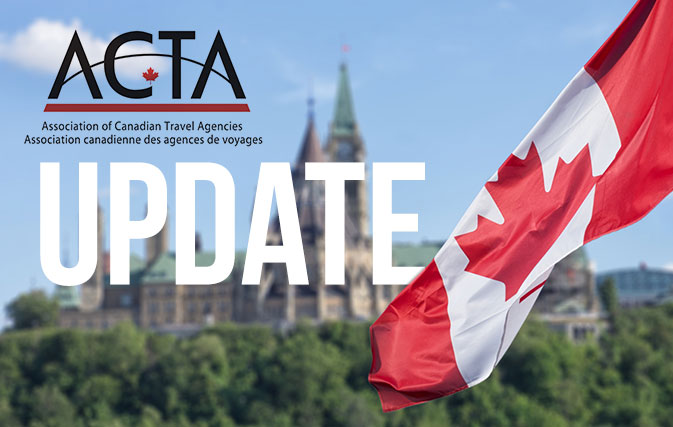MISSISSAUGA — ACTA is advocating for agents during the COVID-19 crisis not just at the federal level, but at the provincial level too, lobbying for the retail travel industry in the regulated provinces of Ontario, Quebec and B.C.
ACTA is also speaking up on behalf of agents when it comes to the federal government’s rent subsidy amid the pandemic.
Earlier this month the federal government announced the new Canada Emergency Rent Subsidy (CERS), available directly to tenants and available through June 2021. The CERS program covers up to 65% of rent or mortgage interest payments for businesses with a revenue decline of 70% or more.
The revised program bypasses the landlord and helps tenants, which ACTA had been asking for. However, as ACTA points out, rent regulations are under provincial jurisdiction. ACTA is asking provincial governments to recognize that travel agencies have been effectively shut down since March due to border closures, travel advisories and restrictions and 14-day quarantines.
ACTA is asking that travel agencies have access to the full 90% rent subsidy and that it be retroactive, as many landlords did not apply for the subsidy.
Meanwhile ACTA has been lobbying in Ontario, Quebec and B.C., here’s an update:
ONTARIO – 2021 TICO fees
ACTA made a written submission to the Ontario Fall 2020 pre-budget consultations asking for the maximum rent subsidy – and also waive of all TICO mandatory consumer compensation fees and renewal fees for 2021.
ACTA says these measures, in addition to what the Ontario government introduced earlier this year, will help Ontario travel agencies with their fixed expenses in a near zero revenue situation.
QUEBEC – OPC fees, FTV claims, refund commissions
In lobbying the Office de la Protection de Consommateur (OPC), the Quebec Ministries of Justice and the Economy, and the Premier’s office, ACTA is asking for the following:
. Waive all OPC fees for 2020 and 2021 and formally allow the issuance of Future Travel Vouchers (FTV) and the coverage of FTV claims against the Quebec consumer compensation fund, similar to the steps taken TICO in Ontario.
. The Quebec fund currently has $142 million, of which the maximum pay-out permitted is 60% or approximately $85 million. With over 35,000 refund requests from passengers totalling approximately $99 million, customers would not be receiving the full value of their trip. While ACTA is recommending that the Quebec government change the legislated maximum pay-out permitted, ACTA’s urgent request is that should the Quebec government approve these consumer refunds, travel agency commissions must be protected.
ACTA has also called upon the OPC and the Quebec government to look at further options to reduce the financial burden for travel agencies including:
- Reducing the amount of the bond and the length of time to five years
- Replacing review engagements with a verification statement for travel agencies with gross sales under $2 million which would align Quebec with TICO’s recent regulatory change. In addition to the recent change to working capital and financial reporting requirements in Ontario, security deposits can also be returned after two years.
B.C. – 2020 / 2021 fees, working capital minimum, security deposits
ACTA has lobbied the B.C. Premier, Minister of Public Safety and Consumer Protection BC asking to:
- Waive all Consumer Protection BC fees for 2020 and 2021
- Remove the minimum working capital requirement and instead allow travel businesses to only require positive working capital
- Reduce the security deposit by 75% on a temporary basis. This would free up capital for travel businesses who are still experiencing a 90-100% decline in revenue.


